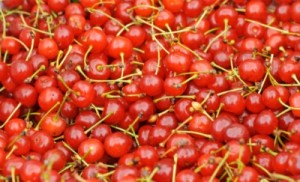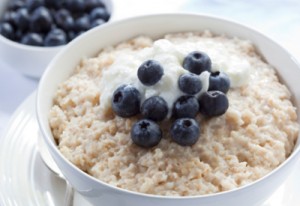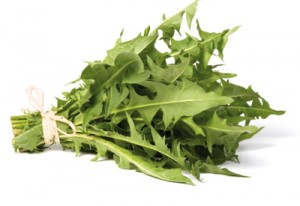Food can be a strong support in the quest for a good night’s sleep. Some insomnia sufferers wake at night because their blood sugar drops too low. Adequate protein and healthy fat intake can help stabilize blood sugar through the night, and allow the liver to let out stored sugar molecules as needed for a good night’s sleep. Foods can also support the healthy production of brain neurotransmitters and create calming results in the body.
Here are the most common sleep scenarios and some of our favorite food solutions for sleep.
Solves This Problem: Trouble Falling Asleep
 The Montmorency cherry is a type of sour cherry. The color is not as dark as the cherries we typically see in the stores. These cherries are great because they have about 6 times the amount of melatonin than a regular cherry. If you can find a cherry juice concentrate, this will also increase the concentration of melatonin even more.
The Montmorency cherry is a type of sour cherry. The color is not as dark as the cherries we typically see in the stores. These cherries are great because they have about 6 times the amount of melatonin than a regular cherry. If you can find a cherry juice concentrate, this will also increase the concentration of melatonin even more.
Melatonin is a hormone produced in your brain’s pineal gland. When it gets dark outside, your eyes sense the lighting change and starts making this hormone, which communicates to your body that it is time to prepare to sleep. Melatonin helps maintain your daily body rhythms, and is an important antioxidant in the body known to fight cancer. In fact, low amounts are shown to increase risk of cancer.
You can find these special cherries in some fine food stores when they are in season. Sometimes they can be found in the frozen section, or look for a Montmorency cherry juice concentrate.
Solves This Problem: Trouble Staying Asleep
Pumpkin seeds and the powder from pumpkin seeds have relatively high amounts of the amino acid tryptophan. Tryptophan is the amino acid the body uses to make the feel-good and relaxation neurotransmitter serotonin. Pumpkin seeds also contain high amounts of zinc, which can help the brain convert tryptophan into serotonin. Serotonin levels are typically low in people who cannot stay asleep and wake throughout the night.
It is best to take about 1 cup of seeds or ½ cup of the powder with applesauce or another healthy carbohydrate; the carbohydrate allows the tryptophan to get into the brain in higher amounts.
Solves This Problem: Nervous Exhaustion and Sleeplessness
 A favorite breakfast food, oatmeal is really a cereal grain made from the herb Avena sativa. Avena is known in traditional herbal medicine as a calming plant that is nutritious for a frazzled nervous system. We often recommend regular intake of oatmeal to help our patients’ bodies cope with long-term stressors more effectively.
A favorite breakfast food, oatmeal is really a cereal grain made from the herb Avena sativa. Avena is known in traditional herbal medicine as a calming plant that is nutritious for a frazzled nervous system. We often recommend regular intake of oatmeal to help our patients’ bodies cope with long-term stressors more effectively.
Oats contain melatonin and complex carbohydrates that can help more tryptophan get into the brain to help you sleep. It also contains vitamin B6, a vitamin which is a co-factor that helps more serotonin get produced in the brain as well.
While you might think of oatmeal only as a breakfast food, it also is a smart choice for a bedtime snack. The Scottish recommend a bowl of oatmeal in the evening to get you feeling nice and sleepy.
Solves With Problem: Hormonal Issues With Sleep Problems
 Dark green leafy vegetables have more nutrients than we will probably ever completely understand. While dandelion is not traditionally known as a sleep-inducing food, we have found using the liver-cleansing properties of dandelion to be a valuable aid in helping sleep.
Dark green leafy vegetables have more nutrients than we will probably ever completely understand. While dandelion is not traditionally known as a sleep-inducing food, we have found using the liver-cleansing properties of dandelion to be a valuable aid in helping sleep.
A healthy liver will balance blood sugar. Blood sugar fluctuations and drops are a major factor in insomnia and waking at night. Hormonal issues, especially in perimenopause and post-menopause can also stop a woman from obtaining a good night’s sleep. In Chinese medicine, foods like dandelion can help balance the liver and nourish the yin, which ultimately strengthens the function of the blood, fluids and hormonal balance.
We like our dandelion as part of a good dinner. We often steam or blanch the dandelion first, then sauté with garlic and organic extra virgin olive oil.
Original Article: http://health.yahoo.net/articles/sleep/photos/what-eat-deep-sleep#0